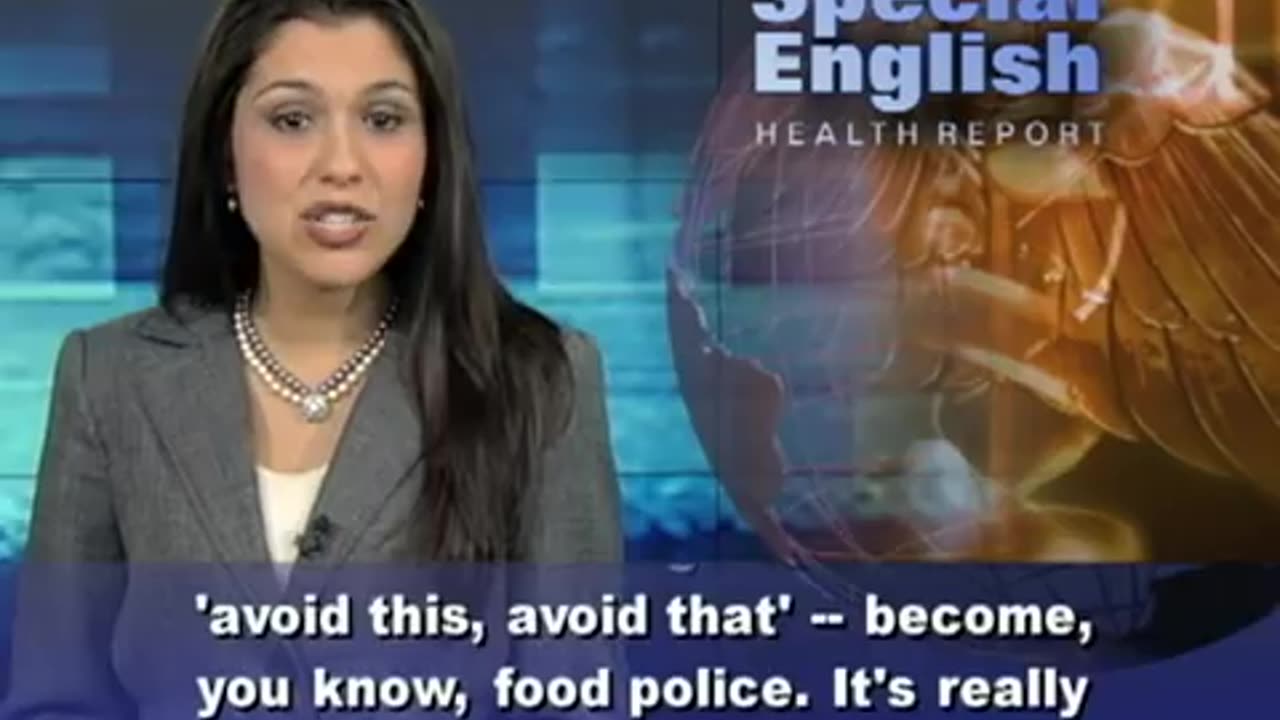Premium Only Content

Want to Lose Weight? Try Counting Calories
THANK YOU
VOA Learning English
@voalearningenglish
https://www.youtube.com/@voalearningenglish
How many calories we eat appears to be more important than what we eat when we eat too much. That was the finding of a new study that should be satisfying to anyone who counts calories for weight control.More than one billion adults are overweight. The World Health Organization calls obesity a global epidemic. Government researchers have just reported their latest estimates for the United States. The good news: obesity rates have not increased much in recent years. The bad news: they have not decreased either. More than one-third of adults were obese in two thousand nine and two thousand ten. Anyone who has ever tried to lose weight knows there are all kinds of conflicting diet plans. Some tell people not to eat carbohydrates. Others say not to eat fats. Still others say to eat more protein. Or to eat less protein. Dr. George Bray at the Pennington Biomedical Research Center in Louisiana led the new study. He wanted to know if protein affects weight gain. Twenty-five healthy adults were in the study. They were overfed by almost a thousand calories a day over an eight-week period. Calories in food are a measure of energy. The people followed diets with low, normal or high levels of protein. Normal was defined as fifteen percent of energy from protein. Dr. Bray says all of them gained weight: "Fat storage was exactly the same with all three levels of protein. It was the calories that they ate that affected the body fat that they stored." Those who ate a higher percentage of protein gained more lean body mass. Dr. Bray says the opposite happened on a low protein diet: "If your protein intake's low, you'll actually lose body mass even though you're eating an excess amount of calories."He tells his patients to weigh themselves regularly so they can know quickly if they gain weight. His study appeared in the Journal of the American Medical Association.Dr. Dariush Mozaffarian at the Harvard School of Public Health studies the relationship between diet and conditions like heart disease and diabetes. He says, "We don't need to go down a list of 'avoid this, avoid that' -- become, you know, food police. It's really actually mostly foods that should be increased. It's fruits, vegetables, whole grains, fish, vegetable oils and nuts." He says increasing these six foods by about one serving each day would reduce obesity and help slow the epidemic of obesity-related diseases.For VOA Special English, I'm Alex Villarreal.You can find a video about the study at voaspecialenglish.com.
-
 2:06:57
2:06:57
Inverted World Live
5 hours agoBigfoot in Idaho & Insect-Based Bioweapons | Ep. 144
61.8K4 -
 LIVE
LIVE
Akademiks
3 hours agoMeg Thee Stallion Back LYING again? Offset vs Finesse2x. 6ix9ine house robbed.. HERES WHO DID IT
1,047 watching -
 2:57:51
2:57:51
TimcastIRL
5 hours agoGOP Rep Threatens Hillary Clinton With CRIMINAL CHARGES Over Epstein | Timcast IRL
234K73 -
 2:36:45
2:36:45
Laura Loomer
4 hours agoEP157: Marjorie TRAITOR Greene Turns On Trump
31.8K75 -
 1:35:44
1:35:44
Tucker Carlson
5 hours agoWhy Is Nick Fuentes So Popular? Nikki Haley's Son Explains.
70.4K413 -
 41:11
41:11
T-SPLY
3 hours agoProtesters Clash With Border Patrol In Charlotte!
20.3K10 -
 2:03:14
2:03:14
ThatStarWarsGirl
3 hours agoTSWG LIVE: I'm Back From My Channel Strike! Let's Discuss The Elephant In The Room
19.5K7 -
 2:59:04
2:59:04
I_Came_With_Fire_Podcast
14 hours agoAmerica's Hidden War | The Propaganda Through Line | An Ally Aids an Enemy
16.5K16 -
 2:14:16
2:14:16
TheSaltyCracker
5 hours agoDEMs Have Real Bad Week ReeEEStream 11-19-25
113K192 -
 LIVE
LIVE
SpartakusLIVE
6 hours agoNEW Redsec UPDATE || STACKS OF LOOT LATER?!
235 watching